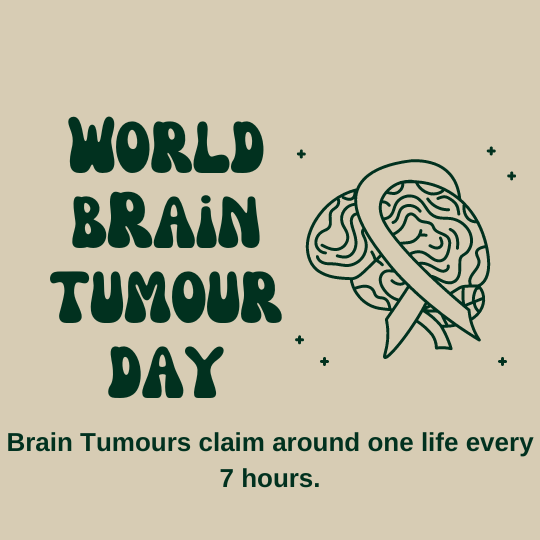There are more than 40 major types of brain tumours, which are grouped into two main types:
- Benign - slow-growing and unlikely to spread. Common types are meningiomas, neuromas, pituitary tumours and craniopharyngiomas.
- Malignant - cancerous and able to spread into other parts of the brain or spinal cord. Common types include astrocytomas, oligodendrogliomas, glioblastomas and mixed gliomas.
Approximately 3.9% of all brain tumour cases diagnosed occur in children
ages 0-14 years.Brain tumors are the most commonly diagnosed solid cancer in children ages 0-14 years, as well as the leading cause of childhood cancer-related death.
There is currently no national screening program for brain cancer available in Australia. There are no proven measures to prevent brain cancer.
The direct cause of a brain tumour is still not clear, so more investment in research is urgently needed.
Some tumours can be removed completely by surgery (craniotomy). Post-operative radiotherapy improves local control and survival. For glioblastomas, temozolomide may be added during or after radiotherapy to further improve outcomes.
If a tumour cannot be removed, the aim of treatment is to slow growth and relieve symptoms by shrinking the tumour and any swelling around it. Treatment options include radiation therapy with or without temozolomide.
Symptoms may include;
- Headaches.
- Difficulty thinking, speaking or understanding language.
- Personality changes.
- Weakness or paralysis in one part or one side of your body.
- Balance problems or dizziness.
- Vision issues.
- Hearing issues.
- Facial numbness or tingling.
- Nausea or vomiting.
- Confusion and disorientation.

